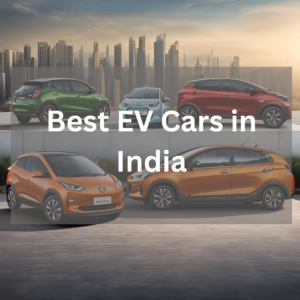As fuel prices continue their upward trajectory and environmental concerns become increasingly prevalent, the automotive landscape is witnessing a profound shift towards electric vehicles (EVs) nationwide. This paradigmatic transition is not only driven by a desire to curb carbon emissions but also by the compelling economic advantages that EV ownership offers. With the burgeoning infrastructure of charging stations facilitating convenient access to power, consumers are finding themselves drawn to the allure of EVs like never before. This confluence of environmental consciousness, economic pragmatism, and infrastructural development is propelling the surge in electric car sales, marking a pivotal moment in the evolution of transportation toward a sustainable and greener future.
Tata Tiago EV
Tata Motors unveiled India’s most cost-effective electric vehicle, the Tiago EV, in September 2022. Positioned between Rs 8.69 – Rs 11.99 lakh (ex-showroom, India), this electric hatchback offers four variant choices: XE, XT, XZ+, and XZ+ Tech LUX. Under the hood, it features a permanent magnet synchronous motor with two battery pack options 19.2kWh 24kWh. Delivering a Modified Indian Driving Cycle (MIDC) range of 250km and 315 km, respectively, the Tata Tiago EV generates 74bhp and 114Nm, boasting a swift acceleration from zero to 60kmph in just 5.7 seconds.
MG Comet EV
The MG Comet EV redefines urban driving with its stylish and luxurious design. This compact car makes a bold statement on the road with dimensions of 2,974 mm in length, 1,505 mm in width, and 1,640 mm in height. Its plush interiors are perfect for capturing Instagram-worthy moments, while high-end safety features like ABS + EBD, Hill Hold Control, and Electronic Stability Control ensure a secure drive. Equipped with a McPherson Strut front suspension, Multi-Link Coil rear suspension, and a 4.2-meter turning circle, the Comet EV delivers a smooth, responsive ride. Priced between Rs. 6.99 and 9.40 Lakh, it’s the ideal blend of style, comfort, and safety for modern driving.
Tata Tigor EV
The Tata Tigor EV is the second most accessible model in this lineup. Priced between Rs 12.49 lakh and Rs 13.75 lakh (ex-showroom, India), this electric compact sedan is available in XE, XT, XZ+, and XZ+ Tech LUX variants. Powered by a 26kWh lithium-ion battery, its permanent magnet synchronous motor produces 74bhp and 170Nm of torque.Tata Nexon EV Prime and Max
The Tata Nexon EV range, with prices starting from Rs 14.49 lakh to Rs 20.04 lakh (ex-showroom) for the top-tier version, is added to the list. This electric compact SUV, available in XM, XZ+, and XZ+ LUX trims, offers two battery options: a 30.2kWh Lithium-Ion Polymer pack for the Nexon EV Prime and a 40.5kWh lithium-ion pack for the Nexon EV Max, generating 127bhp/245Nm and 141bhp/250Nm, respectively.Mahindra XUV400
The recently introduced Mahindra XUV400 emerges as the fourth most affordable model, priced between Rs 15.99 lakh – Rs 19.19 lakh (ex-showroom). This electric SUV features a 39.4kW battery pack with Li-ion cells powering its electric motor, capable of accelerating from zero to 100kmph in a mere 8.3 seconds. The XUV400 offers two variant choices: EC and EL.MG ZS EV
Continuing our exploration of noteworthy electric vehicles, we turn our attention to the MG ZS EV, positioned within the price range of Rs 22.98 lakh to Rs 26.99 lakh. This electric SUV offering from MG comes in two distinct variants: Excite and Exclusive. Boasting versatility, the vehicle presents buyers with a choice between two battery pack configurations: 44.5kWh and 50.3kWh.
Under the hood of the 44.5kWh variant, a three-phase permanent magnet synchronous motor delivers a commendable performance, generating 141bhp at 3,500rpm alongside a torque output of 353Nm. Opting for the larger battery pack version, buyers can harness even greater power, with the motor producing 174bhp and 280Nm of torque, promising a compelling driving experience.
Conclusion
In conclusion, India’s growing market for electric vehicles showcases a promising shift towards sustainable transportation solutions. People often believe that electric cars are unreliable or impractical due to a lack of charging infrastructure. However, this is rapidly changing as electric vehicle charging stations are being set up in great numbers across the country, making EVs more accessible and eco-friendly. With a diverse range of available, affordable options, consumers have ample choices that align with their budget and environmental priorities. As the nation continues to embrace electric mobility, these are the best EV cars in India that stand as exemplary choices, offering economic advantages and contributing significantly to reducing carbon emissions and fostering a cleaner, greener future for all.


